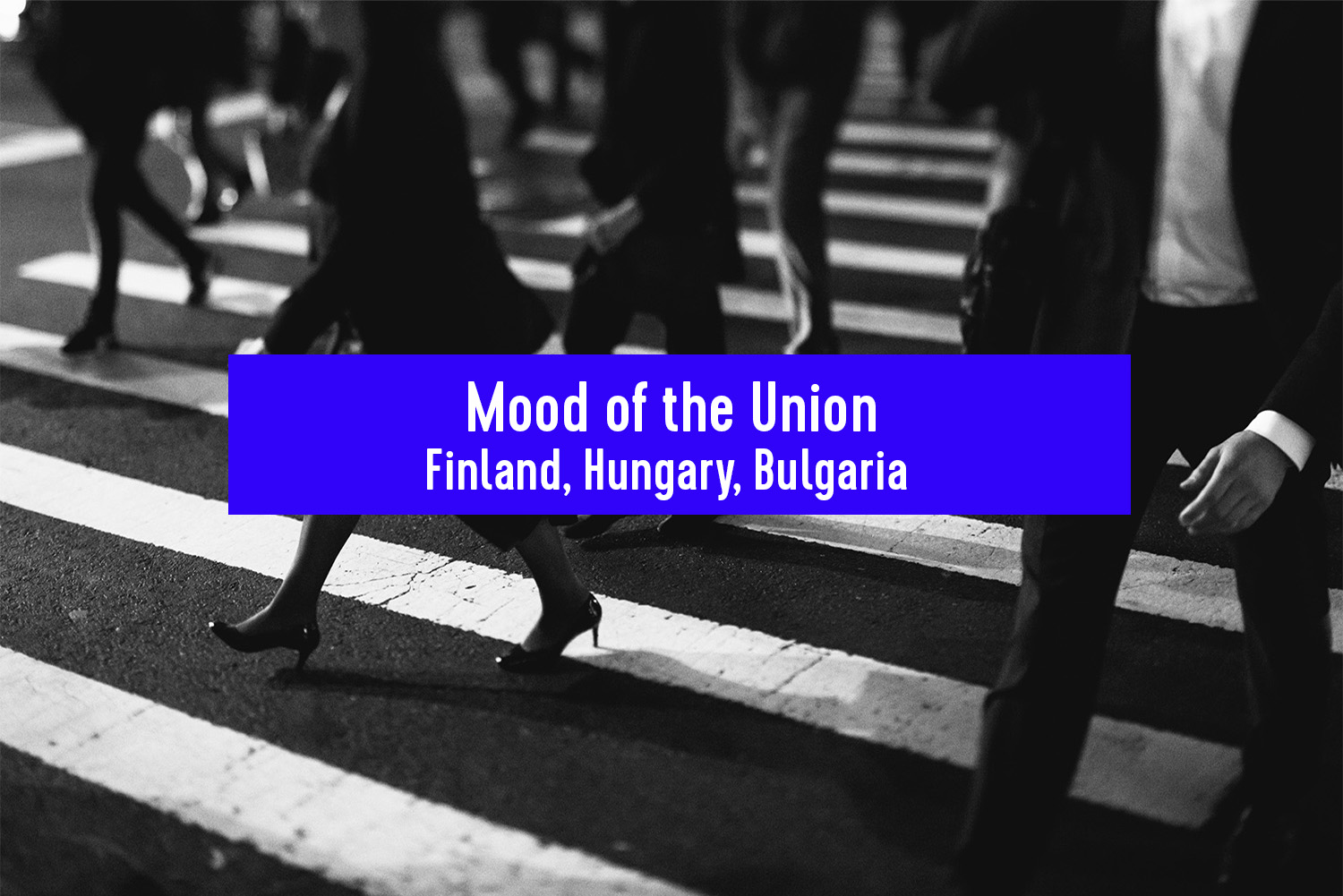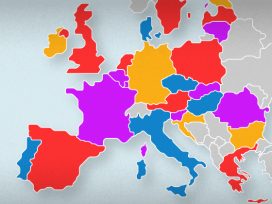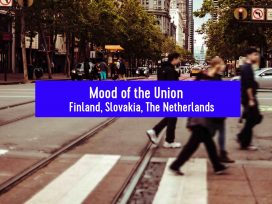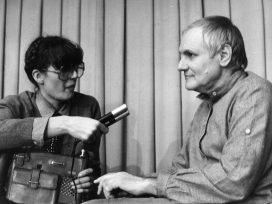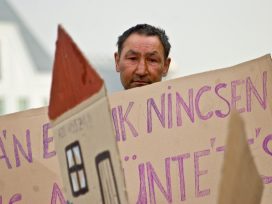The EP elections in Finland reflect the fallout from four years of highly unpopular rightwing rule, with the Centre Party losing the support that had previously secured it control of the country’s government to the Greens and the Social Democrats. In fact, the party fell into fifth place, behind the far-right Finns Party.
In Hungary, a two-thirds majority eluded Fidesz, though it may be that the opposition still lacks the unity required to make any kind of comeback by capitalizing on the ruling party’s hubris. Meanwhile, in Bulgaria the ‘neighbourhood bullying’ of Viktor Orbán and Jarosław Kaczyński now looks less likely to be emulated than the ‘peasant guile’ of Bulgarian Prime Minister Boyko Borisov.
Finland: Peak populism is upon us, Greens on the rise
Janne Wass, Editor-in-Chief, Ny Tid, Helsinki
The results of the EP elections in Finland confirm that peak far-right populism is upon us, as already evident in the national elections held in April. Which is to say that the Finns Party could only muster a slight gain from 13 to 14 percent, retaining two out of the country’s 13 seats in the European Parliament.
The moderate centre-right parties suffered a setback, with the Centre Party losing 6 percent of their previous share of the vote. Shortly after May’s election, the party’s president Juha Sipilä resigned as prime minister. The party also lost a seat in the European Parliament, which was picked up by the Greens in second place, who increased their share of the vote from 10 to 16 percent.
Support for the moderate rightwing National Coalition Party dropped slightly, though the party held on to their three seats. It can now be considered the outright winner of the EP election in Finland after having gone head to head with the Center Party last time round. Nonetheless, the margins between the five largest parties are extremely small, with the Social Democrats just ahead of The Finns and just behind the Greens. Finally, the liberal rightwing Swedish People’s Party and the Left Alliance of democratic socialists retained one seat each.
The Finns Party dispatched two of their most incendiary politicians, Laura Huhtasaari and Teuvo Hakkarainen, to the European Parliament. Both represent the party’s hardline anti-immigrant flank. Huhtasaari, a creationist, has repeatedly defended racist comments made by her party affiliates, relentlessly underlined that human rights do not apply to terrorists and opposed same-sex marriages and feminism. During his time as an MP, Hakkarainen has been convicted of both incitement against an ethnic group and sexual assault.
On the other hand, former chairman of the Social Democratic Party Eero Heinäluoma also becomes an MEP this year, after having widely been viewed as the silent power broker within his party. Popular former journalist and Left Alliance MP Silvia Modig suffered a surprising defeat in the national election, but her party rallied around her in the EP elections, allowing the openly gay politician to continue her political career. Both Green MEPs Heidi Hautala and Ville Niinistö are former party leaders.
Compare perceptions of how far public power is exercised for private gain, including both petty and grand forms of corruption, as well as ‘capture’ of the state by elites and private interests. More on the methodology here. Check out figures of governance effectiveness, crime rates, employment data and further statistics of over two decades from EU member in our Mood of the Union infographics.
Hungary: Fidesz wins big, but what if the opposition unites?
Péter Krekó, Director, Political Capital Institute, Budapest
When Viktor Orbán left the voting booth on 26 May, he expressed high hopes for anti-immigration forces in the European elections. Asked by a journalist if he still promotes the ‘Austrian model’ (cooperation of the centre right with the radical right) after Ibiza-gate, his response was: ‘I have now switched over to the Italian model.’ He said Fidesz remains a member of the European People’s Party (where its membership is suspended), but leaving it altogether is also an option. This statement reflected just how deeply convinced he and his party once were that the populists would make a major breakthrough in Europe. Which reflected very strong wishful thinking as not a single pundit had predicted a major political earthquake.
And the ‘miracle’ never materialized. Overall, the eurosceptic Right slightly increased their share of seats in the European Parliament, from 23 to 26 percent. This scarcely makes them a dominant force; and (what a surprise!) they remain divided. With the dream of a dominant eurosceptic bloc over, Fidesz is doing its best to win back the support of the EPP leadership and regain full membership.
Of course, Orbán will never admit that he was wrong. Instead, he claims personal success in seeing off Manfred Weber and Franz Timmermans, who they saw as ‘Soros’s candidates’ for President of the European Commission. As a result, Ursula von der Leyen was selected instead, a mother of seven children: conservative values have returned to the European Union.
Contrary to expectations, Fidesz did not achieve two-thirds of the Hungarian vote in May. Nonetheless, it retains a clear majority with 52.3 percent and 13 out of 21 mandates. The party’s growing financial and organisational clout, reinforced by an increasingly authoritarian political system, seems to be paying off. Yet its almost inconceivably high campaign spending, overwhelming media dominance (especially in the countryside) and illegal unofficial lists of voters suggest a highly unfair, albeit nominally just about free election.
The significant reshuffle of opposition parties (the biggest since 2010) was not predicted by pollsters at all. The liberal party Momentum emerged just two years ago, after running a successful petition campaign against Orbán’s other dream of hosting the Olympic games in Budapest. In May it secured 10 percent of the vote and joined Renew Europe (formerly ALDE). This was a significant increase on last year’s 3 percent in the country’s general election and enough to send 2 MEPs to the European Parliament, including Katalin Cseh, now Vice-Chair of Renew Europe.
Ex-Prime Minister Ferenc Gyurcsány’s party, Democratic Union (DK, affiliated with S&D), tripled its share, achieving almost 17 percent. Both winners on the opposition side had female lead candidates. The traditional Hungarian Socialists (MSZP), once Fidesz’s strongest rival, could only manage a mere 6 percent, suggesting that this is the beginning of the end for the party. The far-right Jobbik, the primary target of Fidesz, is in survival mode at best, while the greenish Politics Can Be Different (LMP) essentially disappeared.
The results reveal that the dominance of identity politics (on both sides) and the polarisation of society look set to continue. While this will push Fidesz further into illiberalism amid a deeply divided political landscape, the ruling party will try to return to the European mainstream whether it remains an EPP member or not. The next political test is the municipal elections in October, where the opposition is uniting in the larger cities. But the momentum seems to be lacking again for a political breakthrough, so an ‘Istanbul moment’ seems unlikely.
Bulgaria: Political resignation in lieu of proper representation
Dimitar Vatsov, Editor, Critique and Humanism, Sofia
Average turnout across the European Union may have been just over 50 percent this May, the highest for two decades. But Bulgaria returned a record low for the country of just 32.64 percent. This does not mean that political apathy was limited to Bulgaria though: according to European Parliament data, the EP elections saw an even lower turnout in Slovakia (22.74%), the Czech Republic (28.72%), Slovenia (28.89%), Croatia (29.86%) and Portugal (30.75%).
In the wake of Brexit, a relatively low turnout is probably understandable for the UK (36.90%), but what’s more striking is the general contrast between eastern and western Europe. Voter turnout even in Hungary and Poland, where relations with the EU are directly at stake in national politics, was lower than the EU average (at 43.36% and 45.68% respectively), while Lithuania (53.48%) and Romania (51.07%) are the only eastern European countries where it was slightly higher. Western member states tended to achieve somewhere around or above the EU average (50.62%), with Germany reaching 61.38%, and Belgium and Luxembourg topping the table with over 80 per cent.
Thus the eurosceptic nationalist populist discourse of recent years has largely done its job – not only in the UK but also in eastern Europe: it has discouraged citizen participation. Many eastern Europeans now believe that their participation in the European elections is meaningless: ‘Brussels/the great powers dictate everything’, ‘small peoples/countries have no say.’ This resignation, of course, is partly linked to the European Union itself, since the European Parliament does not offer its citizens true political representation.
In contrast to France and Italy, where the relatively high turnout benefitted Marine Le Pen and Matteo Salvini, the low turnout in Bulgaria was bad for the populists. As I predicted, of the four nationalist populist parties currently represented in the Bulgarian Parliament, only the most moderate – the VMRO (Internal Macedonia Revolutionary Organization) – won two seats (out of Bulgaria’s 17 in the European Parliament). In formal terms, the results of the elections were a complete victory for pro-European forces in Bulgaria.
The combination of euro-apathy, as manifested in the low turnout, and euro-support, as manifested in the results of the European elections in Bulgaria, is another version of something Boryana Dimitrova has aptly termed the ‘paradox of public opinion’: whereas, on average, over 70 percent of respondents to a 2018 survey in Bulgaria believed populist propaganda theses such as ‘The Bulgarians are treated by the EU as second-rate people’ and ‘Bulgaria’s foreign policy is dictated by Brussels’, almost as many, 68.9 percent, supported the country’s chosen geopolitical orientation within the EU. As a practical rational choice, Europe seems to have no alternative for Bulgarians, but at the emotional level, the propaganda of the Kremlin and local populists has succeeded in undermining respondents’ identification with the selfsame Europe. As for why euroscepticism is growing at an emotional level, and which attitudes and stereotypes serve as the basis for this, especially in the countries of what used to be eastern Europe: that is another matter.
Even so, it is the local oligarchs who have a stake in and stoke media dissemination and generation of euroscepticism – not so much in its vehement form, which attacks people’s practical, rational pro-European choices and, in order to assert itself, leads towards authoritarianism, as in its milder form, the one that tells you, ‘Leave things in God’s hands, there is nothing that you can do!’ It is this form that seems most dangerous to me.
This is because such euroscepticism creates conditions for state capture – for governance without civic resistances, behind the facade of ostensibly democratic institutions. This type of euroscepticism, inflated to the point of political cynicism in the most general sense, has seriously infected both the media and the pro-European mainstream parties in Bulgaria. I am wondering whether euroscepticism as the ideological packaging of the oligarchy, at least in eastern Europe, won’t change its form and move away from almost authoritarian ‘neighbourhood bullying’ in the style of Viktor Orbán and Jarosław Kaczyński, towards balanced ‘peasant guile’ à la Bulgarian Prime Minister Boyko Borisov.
Unemployment rates in Finland, Hungary and Bulgaria since 1991, compared with other member states as well as against the EU average. Check out figures of governance effectiveness, crime rates, education and health care data and further statistics of over two decades from EU member in our Mood of the Union infographics!
‘Mood of the Union’ is published by Eurozine and sponsored by the ERSTE Foundation and the National Endowment for Democracy.

